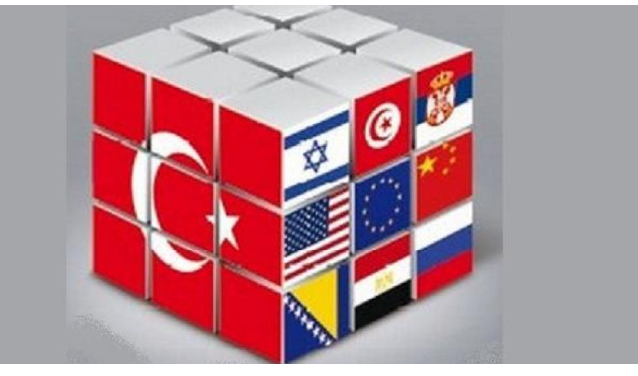This month marks the first year of Turkey’s current five-year legislature. When Recep Tayyip Erdoğan was elected for his third presidential mandate with 52 percent of the votes on May 28, 2023, his victory was seen as an illustration of his personal command over domestic politics, despite a deep economic crisis. His international role seemed to be enduring.
Today, sharp divergences with Western partners over the rule of law, the future of Cyprus, Israel and Hamas, and over Russia and Ukraine have ended in near-deadlock. Overcoming this impasse calls for a fresh reading of European perceptions of Ankara’s positioning over the past year.
On the economic front, progress has been made after the misguided economic policy—especially on interest rates—was drastically reversed mid-2023. By now, Western financial circles are praising Turkey’s economic policy, hard currency reserves are increasing, and the political commitment to master inflation seems to hold. Yet, Western financial circles and Turkish analysts continue to raise the issue of a sharply degraded rule-of-law architecture, a domain which falls outside the purview of the Economy and Finance Ministry. Investors, fund managers, and bankers need a reliable and predictable judiciary to restore full confidence in Turkey.
Domestically, the enthusiasm of May 2023 has largely dissipated and in March 2024, local elections saw the presidential coalition severely backtrack. The president’s societal project has not been successful: his motto “raising a pious generation” has not been accepted, the urban population—77 percent of the total—wants to be the master of its own lifestyle, while the lack of a free media and unfair court judgments are deeply resented.
Turkey’s diplomatic goals are crippled by contradictions and ambivalence: an expanding relationship with Russia is at odds with NATO membership; a drive to restore relations with Israel coexists with strong support for Hamas; a nominal aspiration to be an EU member is contradicted by an openly authoritarian governance system.
Third, the Turkish president’s proclivity toward headline-grabbing actions led to estrangement from his Western partners and hampered his capacity to mediate major conflicts. These include a state-level welcome of the Hamas leadership team on April 20; a persistent hostility toward Osman Kavala—who was denied a retrial on May 15—based on spurious evidence and in contradiction with judgments by the European Court of Human Rights; a tirade against Israel’s purported intention to target Anatolia on May 15; and massive condemnations of Kurdish leaders on May 17.
Murat Yetkin: Power play in Ankara: Bahçeli’s influence on Erdoğan
Overall, Turkey’s standing on the international scene has diminished.
On April 17-18, due to the accumulation of international crises, the European Council devoted little time to a special report on Turkey and issued minimalist conclusions—admittedly not a particularly elegant piece of diplomatic literature—which infuriated both Turkish officials and liberal thinkers, oddly united in ignoring rule-of-law issues.
A long-sought meeting with the U.S. president on May 9 was “postponed” when it appeared it was heading toward a confrontation of irreconcilable priorities.
On July 9-11, the NATO Summit in Washington D.C. will be the first occasion this year for an encounter between President Erdoğan and President Biden, assuming that a bilateral meeting will take place. The July 18 European Political Community summit near London, where the focus will inevitably be Ukraine, Moldova, and Georgia, could also serve as a platform for Turkey’s leadership.
In assessing Turkey’s standing in the world from Brussels, a stark contrast between Ankara’s narrative and the perceptions of leaders in Berlin, London, Paris, or Washington D.C. is evident
Western partners have long been perplexed by Ankara’s foreign policy choices and their sharp fluctuations. Turkey, for its part, has long seen hypocrisy in the West’s policies, and particularly a lack of strategic vision in EU positions.
The road ahead for EU-Turkey relations is therefore uneasy, especially as the June European Parliament elections will focus on defending the rule of law—an existential pillar of the EU’s political agenda—inside Europe. In such a context, staying mum on the rule of law in the relationship with Turkey is impossible, especially as Ankara boasts a strategic partnership with Hungary, a country widely seen in the European Parliament as a threat to EU values.
In the Turkey-U.S. relationship, it is an open question whether defense matters will remain in focus
Moreover, it is not obvious that an eventual change in U.S. leadership in 2025 would benefit Turkey, given the latter’s policy in favor of Hamas and expanding links with Russia.
Democratic values are under attack in countries belonging to the EU, the Council of Europe, and NATO—from within and indeed from outside. Yet, they will remain core elements of these institutions’ founding treaties, especially as a war of aggression rages in Europe and extreme-rights views are rising.
Excerpt from Carnegie Strategic Europe
Follow our English language YouTube videos @ REAL TURKEY: https://www.youtube.com/channel/UCKpFJB4GFiNkhmpVZQ_d9Rg
And content at Twitter: @AtillaEng
Facebook: Real Turkey Channel: https://www.facebook.com/realturkeychannel/
